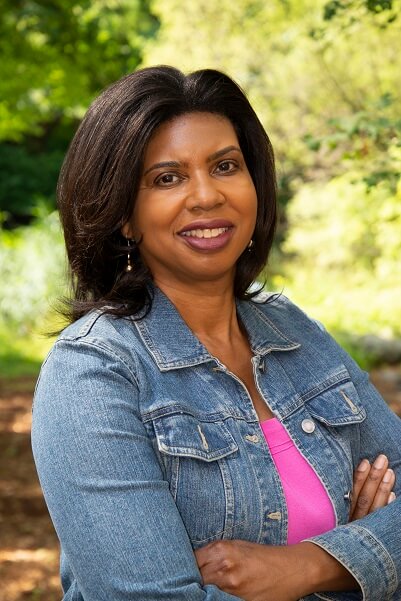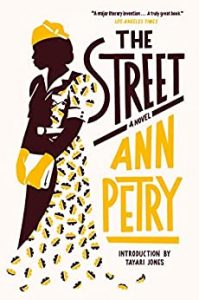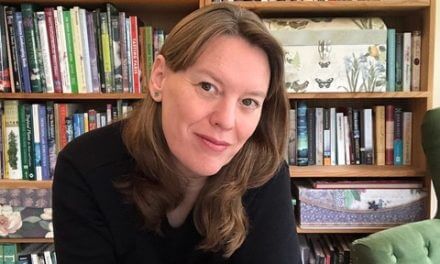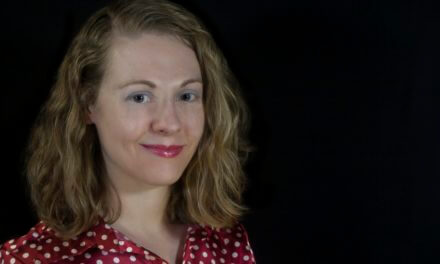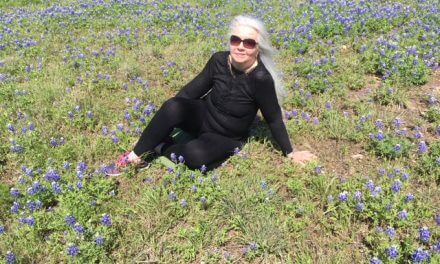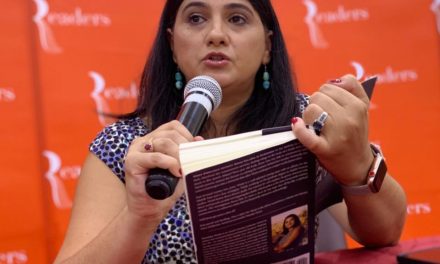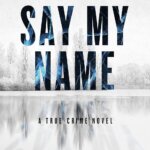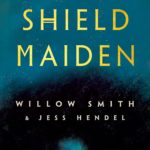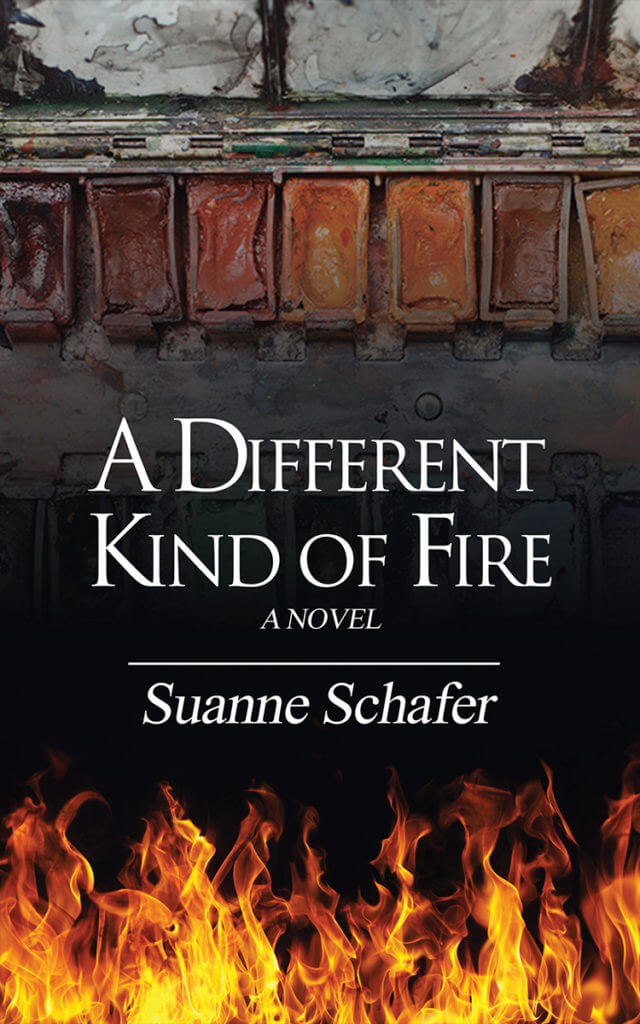Today I’m chatting with Lisa Braxton in a socially-distanced web interview. Lisa is an essayist, short story writer, and author of the debut novel, The Talking Drum. She is also a “debutante,” one of five debut novelists chosen for the Debutante Ball, a group blog for authors making their debut in the literary world. She is a fellow of Kimbilio, a fellowship for fiction writers of the African diaspora and also a book reviewer. Her stories and essays have appeared in Vermont Literary Review, Black Lives Have Always Mattered, Chicken Soup for the Soul and The Book of Hope. She received Honorable Mention in Writer’s Digest magazine’s 84th and 86th annual writing contests in the inspirational essay category. She earned her Bachelor of Arts degree in Mass Media from Hampton University, her Master of Science degree in Journalism from Northwestern University and her Master of Fine Arts degree in creative writing from Southern New Hampshire University. She is a former newspaper and television journalist.
SS: Welcome, Lisa. Can you share a bit about your background?
LB: I was born and raised in Bridgeport, Connecticut, an East Coast industrial city whose claim to fame is the fact that circus showman P.T. Barnum was at one time the mayor. Barnum Avenue is a major thoroughfare in the city, and streets are named after Barnum’s family members. I attended a Lutheran elementary school from kindergarten through eighth grade. My sister went there as well. Obviously, religious instruction was a big part of our education. I sang in the choir during Wednesday chapel and participated in spelling bees, Girl Scouts, and many other activities. Because of Bridgeport’s proximity to New York City, there was ample opportunity to travel there and see the sights and soak up the culture. In addition to attending Lutheran Church on Sundays, my sister and I would attend the Baptist church with our parents, attend Sunday School, participate in church pageants and other activities.
SS: What did you want to grow up to be as a child? Has that child’s desire appeared in your work?
LB: I wanted to grow up to be a writer. As I got a little older, I became interested in photography. I remember how proud I was when I earned my photography badge in the Girl Scouts. When I went to college, my interests went in the direction of print and broadcast journalism and photo journalism. I spent a lot of hours volunteering on the college newspaper and the college radio station. By my senior year, I only had time to squeeze in one photography class in which I learned photo composition and black and white development. If it had been feasible, I would have taken more courses and perhaps also pursued a career in photojournalism.
Readers of my novel will be introduced to my main character, Sydney, who has pursued a law degree, but is also interested in newspaper journalism and loves to take and develop her own pictures.
SS: What was an early experience where you learned that language had power?
LB: This may sound very elementary, but when I was probably two years old, a friend of the family was babysitting me. She had a green soda bottle on the kitchen table, and I was fascinated by the label. I asked her what the symbol on the label meant, and she told me that it said 7Up. I was amazed that a person could look at a line or a shape, and it could tell you something. That was a powerful moment for me. I couldn’t wait to see more shapes and lines and learn what they could tell me.
SS: What literary pilgrimages have you made?
LB: A few years ago, I visited Orchard House in Concord, Massachusetts, the home of Louisa May Alcott and the place where she wrote Little Women. Little Women was my favorite children’s book. I read it in the fourth grade and was so proud of myself because it was the longest book I had read up until that time. I felt a range of emotions as I read the book and actually shed tears when Beth passed away. I resolved in that moment that I would become a writer. While at Orchard House, I was amazed to see the little white writing desk that Louisa May Alcott used to write the book. I couldn’t imagine using just that little space for writing. It was a very emotional moment for me to see the desk where she wrote the story that I feel helped me find the course for my life.
SS: Writing is undoubtedly a lonely occupation. John Green (The Fault in Our Stars) says writing is a profession for introverts who want to tell you a story but don’t want to make eye contact while doing it. P. D. James (Cover Her Face) says it’s essential for writers to enjoy their own company. Do you see yourself along those lines? Are you a natural loner?
LB: I am a natural loner, growing up I was a bookworm. I favored curling up with a good book over going outside to play. My mother would have to coax me out of the house to go into the backyard to get some sunshine. I was painfully shy and felt most comfortable staying to myself. As a result, it was very easy for other kids to not really “see” me. I felt I didn’t have a voice. I was too shy to express myself a lot of the time around my peers or feared that they would think that what I had to say wasn’t important or relevant. I found that through writing I could express myself, that I could probably be more powerful with the written word than I could be with a shy voice.
SS: Do you have a day job? If so, is it a distraction, or does it add another element to your writing?
LB: Until recently I worked a full-time job. I’ve worked consistently since I graduated from college. When I worked in print journalism, I found that I didn’t have the mental space to write creatively because I was writing more than forty hours a week for the newspaper. When I worked in television journalism, it wasn’t mental space I lacked, but time to write creatively. I worked odd hours and was called in for breaking news stories. It wasn’t until I left television and went to work for a nonprofit in which I had regular hours that I felt I had both the mental space and time for writing. That’s when I began to get some short stories and essays published and applied to low residency MFA programs in creative writing.
SS: How long have you considered yourself a writer? Did you have any formal training, or is it something you learned as you went?
LB: I’ve been a writer ever since I could read. As a child I’d write little stories about dogs and other animals. I even wrote a story in which I personified a wall, that my family found entertaining. I knew early on that I wanted to be a writer and proclaimed that to my mother one day. She was very encouraging, but she let me know that I needed to have a profession to go along with my writing so I’d be able to earn a living. I was a reporter for my high school newspaper, majored in media (print, radio, television, and advertising) in college and served as editor in chief of my college newspaper my junior and senior year and then went on to work at a radio station as a reporter and newscaster, then a major metropolitan newspaper for a few years before working as an editor for publications at a nonprofit press. I went back to college and got a master’s degree in journalism with an emphasis in broadcasting and worked as a reporter and news anchor at small-market television stations. All of these experiences have helped me fine-tune my skills for writing creatively. Add to that the MFA I earned at Southern New Hampshire University in creative writing.
SS: Do you generally write in one genre? If so, what is it? And what can readers expect from one of your books?
LB: My book is fiction, but for shorter pieces I’ve tried out different genres and had some success. I enjoy writing personal essays, especially essays that would fall into the inspirational category. I had an essay published in Chicken Soup for the Soul, a few years ago which was very exciting for me because that was the first time I had a story published in a national publication, a publication that readers could actually go to a bookstore or the library and find on the shelf. I’ve also had pieces published in inspirational anthologies. I also enjoy writing devotionals. Even though devotionals may only be a few hundred words long, I find them more challenging than writing longer pieces; summing up what you want to say and motivating people in only a few words along with making sure every component—thought for the day, prayer focus, the scripture—follows a strict common thread makes them tough to do. I’ve had one devotional published.
My novel, The Talking Drum, takes place in 1971; therefore, it falls into the category of historical fiction. Readers can expect to enter a different era in a world they may or may not be familiar with.
SS: Do you ever incorporate something that happened to you in real life into your novels?
LB: In The Talking Drum, my character Sydney finds that Pumpkin the cat has a closer bond with her husband, Malachi, than with her. Also, the cat can be a bit prickly at times, scratching and biting without provocation. In real life, my husband and I adopted a cat that loved to spend time with him, but tolerated me. She’d get jealous anytime he’d show me affection, stomp on our feet or bite his arm to get him to pull away from me. She actually bit both of us and drew blood on more than one occasion.
SS: Do you hide any secrets in your books that only a few people will find?
LB: I’ve hidden a few secrets in The Talking Drum that close family members and friends will probably find. A character named Percy owns a German Shepherd named Bridgette. Coincidentally, or not so coincidentally, growing up we had a German shepherd in our household named Bridget. Also in the book is an upscale art gallery named Deborah’s. Deborah happens to be my best buddy from my college days. A mischievous cat appears in the book by the name of Pumpkin. When I was writing scenes involving the cat, I asked my niece to suggest a name. She gave me a list of possibilities, including Pumpkin, which I chose.
SS: Do you think that self-revelation is part of the writing process?
LB: Yes I do. Some years ago, I had a former co-worker who I hadn’t seen since I was in my mid-20s proofread the manuscript of The Talking Drum for me. She said that in many ways my character Sydney—who is in her early to mid-20s at the beginning of the book—reminded her of me at that age. I hadn’t realized that quite a bit of my younger self was inspiration for that character.
SS: What are you currently reading?
LB: I just finished reading The Street, by Ann Petry. I’m so glad there’s been a renewed interest in Petry and her novel. The Street, her 1946 debut, became the first novel by an African-American woman to sell more than a million copies. The book was a treat to read and I found it hard to put down.
SS: The discussion of the importance of diversity in literature has been ongoing for decades but has become much more visible over the past few years. How does your novel fit into this schema?
LB: My novel touches on themes of intra-racial, class, and cross-cultural tensions. It should spur conversations about race, class differences, the treatment of immigrants, and the government’s relationship to society.
SS: There’s been a long history of majority-group authors (white, abled, straight, cisgender, male, etc.) writing outside their experience to tell diverse stories. Sometimes the characters and stories they create are wonderful, but often, they’re rife with stereotypes, tropes, and harmful portrayals. How do you avoid creating stereotypes of the “other”—i.e. the white, abled, straight, cisgender, males?
LB: The mark of a good writer is to be able to step out of your own shoes and write about a culture, place, way of life that is not your own. Without that, writers wouldn’t really have a story to tell that had any depth to it. With that said, it’s unfortunate in our society that some voices aren’t heard often enough. There are people of color, many people of color, who are writing their stories about their culture, but they are not able to get the publishing contracts, the attention of agents, to get their stories out there. There is such a disparity when you look at the number of authors from the dominant culture who get their books published and you look at the number of people of color who get their stories, their books published. As long as we have that difference, there are going to be concerns raised about cultural appropriation.
If you are from one culture and you’re writing about another, authors, do your homework. That’s so important. When I was writing The Talking Drum I knew that I wanted my drummer and his uncle to be from Senegal. I was able to find a Senegalese restaurant in Boston where I was able to learn about the cuisine, and I told the owner about the book I was working on and she agreed to invite some of her friends and colleagues from her country to come to the restaurant to meet with me. They shared stories with me about their culture, what it was like growing up there. Their impressions of the United States, why they came to the United States. I wanted to depict my characters as accurately as possible.
I also took hand drumming lessons at a drumming school. I wanted to meet African drummers and learn what it was like to actually play the drums to bring accuracy to my characters in the story.
LIGHTNING ROUND:
SS: Describe your books in 3 words: Fiery, propulsive, enrapturing
SS: Your favorite guilty pleasure: New York Style Cheesecake with fresh strawberries and strawberry syrup on top
**********************
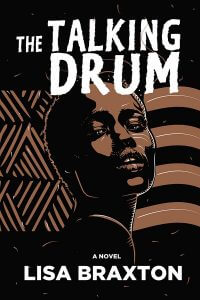
**********************
An excerpt from The Talking Drum:
Omar Bassari read the notice that his wife Natalie held inches from his nose. The Bassaris had to pay three months’ back rent by the end of the month—including late fees—or be evicted.
“Il est un idiot,” Omar muttered as he returned his attention to the peanut paste he had cooking on the stove. “Fullerton does not care a fig about us.”
Natalie flung the notice, along with the rest of the day’s mail and her canvas book bag, onto the kitchen counter. An accounting textbook, The Bellport Gazette, and some sheet music slid out. She tugged at the sleeves of her goose-down jacket and hung it on a hook in the hallway. “I knew a rent strike was a bad idea,” she fumed. “Why did you listen to those people?”
The Bassaris rented a cramped two-bedroom apartment in The Commonwealth Arms, a pre-World War I building on King Street, in the heart of Petite Africa, owned by white businessman James Fullerton. They’d moved there six months ago when a fire burned down their three-story rooming house on the corner of Pleasant and Garfield Avenues five blocks away.
Omar’s uncle Mustapha had found them their first apartment a year and a half ago when the couple moved to town after they both had dropped out of Howard University in Washington, D.C. After the fire, Mustapha stepped in again, negotiating a reduced price from Fullerton for the couple to live at The Commonwealth Arms. This allowed Omar to cover most of the household expenses with the thirty to forty dollars a week he averaged from his drumming performances.
Natalie was studying to be an accountant but dreamed of acting in theatre and film. She had white classmates at Bellport Community College who got experience and a little extra money doing bit parts in television commercials. But casting companies rarely chose black performers. So she settled for jobs doing voiceovers and singing jingles for radio. She barely made enough to pay for her college courses and private voice and acting classes. Little was left over for anything else.
The Commonwealth Arms was in worse shape than the other building they lived in. The plumbing periodically backed up. The oil heat worked off and on. To Omar, the building’s problems were minor inconveniences. Growing up in Senegal, he knew nothing of utilities, landlords, rent, or groceries. He spent his childhood in the family ker, a compound of mud huts with thatched roofs. There was no plumbing, running water, or electricity. Pit toilets were kept at the far end of the ker. At sundown, villagers lit paraffin lamps or candles, or sat in the dark and told fables.
Once, Omar got workers to fix the boiler, but within days it broke down again. Then one night, the elevator broke. Tenants got stuck between floors for hours. Natalie was forced to haul her books and groceries up six flights.
All of the tenants were fed up with the conditions. They met in the stairwell to vent about the building’s problems and decided on a rent strike. Natalie saw the strike as a waste of time. She thought there was no way Fullerton would budge and that she and Omar should simply pack up and move. Declaring “the jungle is stronger than the elephant,” Omar overruled his wife. Today, all the tenants found eviction notices taped to their doors.
**********************
You can follow Lisa here on social media:
Website | Twitter | Instagram | Facebook
